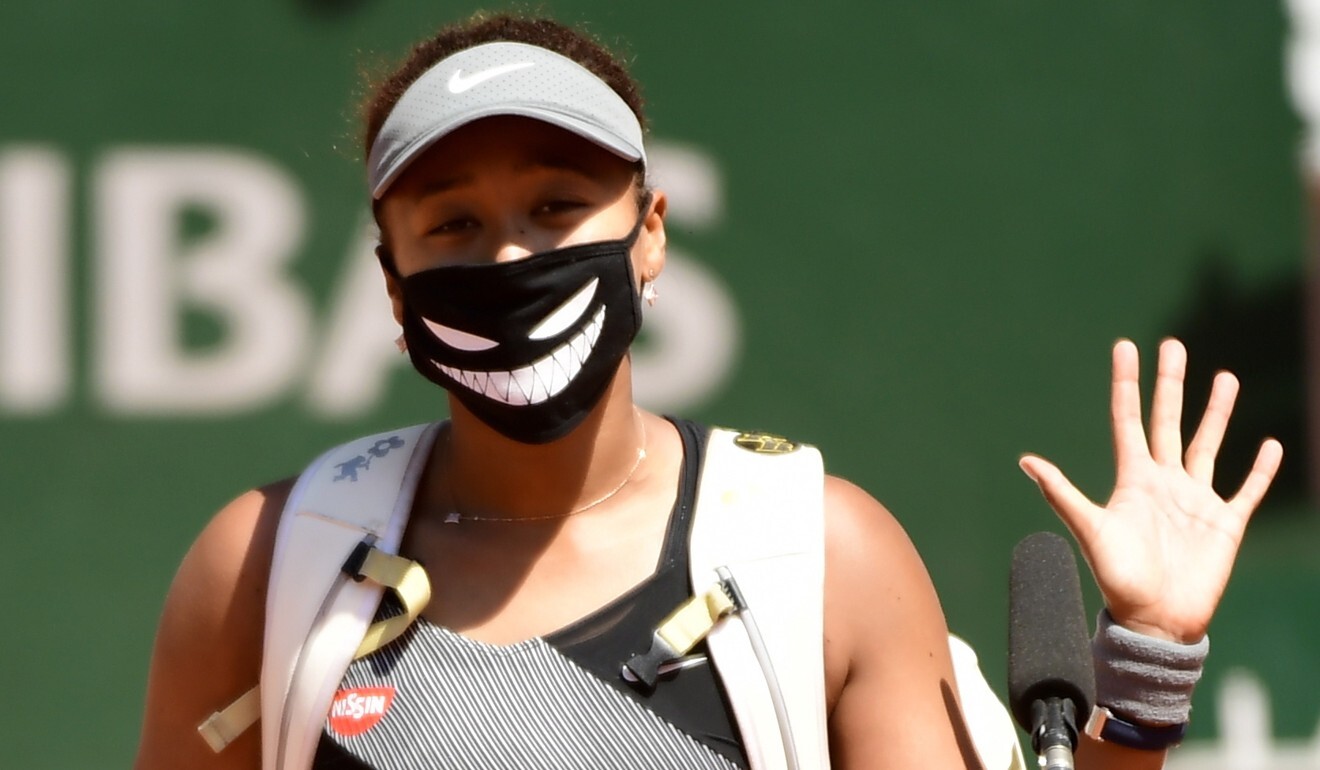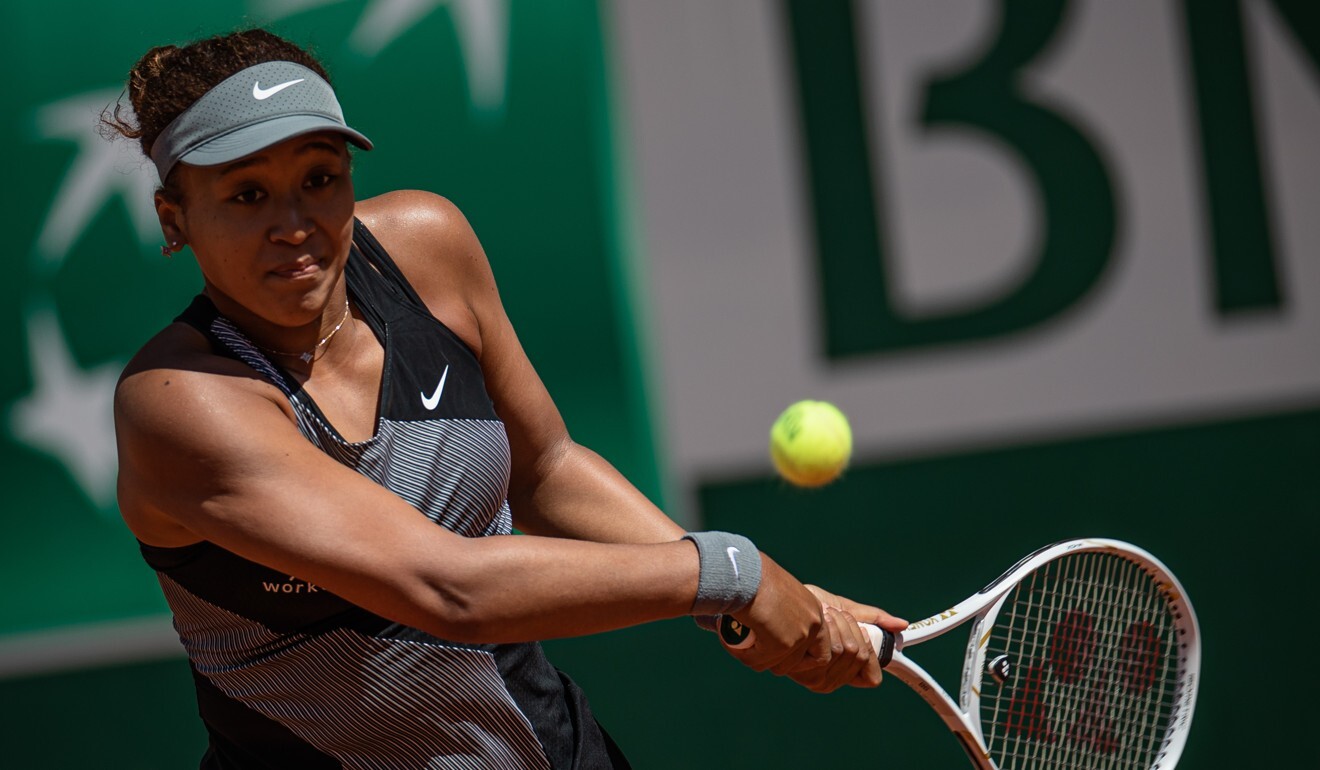
French Open: Naomi Osaka called their bluff, who calls the shots?
- Strong opinions on either side of world No 2’s decision to pull out of Roland Garros over mental health and media duties
- Double standard of tournament chief not taking questions from journalists proves that this is a bigger issue
Mental health is a subject that has only become part of the mainstream conversation in recent years and multiple grand slam-winning multimillionaires are as human as any of us.
To doubt someone for saying they have struggled or are struggling with mental health issues is not right. Just because they are in the public eye does not make it any better.
Calling someone an “arrogant spoiled brat” and “petulant” for prioritising their mental health is hardly sympathetic – and further proof that disagreeing with Piers Morgan is generally a good pointer.

The usual suspects have claimed that agreeing with Osaka is evidence of being “woke” and that’s before either side pulls too far at the worrying relationship between sporting bodies, their athletes and the “shut up and dribble” mentality of some elements of the media.
It’s part of the job, people say. OK, can you take a look at yourself and honestly say you do all of your own job to the best of your ability? Most workplaces have their colleagues who seem to willfully disregard their jobs – they are often rewarded for it.
Yet an athlete is somehow letting us all down by not speaking to the press? After doing their actual job of playing sport?
The media have a part to play in this, too. It must be said that not every press conference matches the elite level of the sport that precedes it. Inanity is not the worst of it and more often than should happen there are questions that concern dress, looks and speaking up outside tennis.
The media conference dates back to a time when there was only a mainstream media. Social media has changed everything. Many athletes use it as a platform, their presence online certainly fulfils their obligation to “support the sport”.
Tennis and NBA stars back Naomi Osaka for French Open exit
Whether an athlete can snub the media being the most talked about topic in traditional and social media is proof that times have changed.
Meanwhile, the French Open has not shrouded itself in glory.
First, French Tennis Federation president Gilles Moretton said Osaka’s decision not to do press was a “phenomenal error” and “not acceptable”. Then they threatened her with disqualification before Osaka made the decision for them.
Moretton read a statement, saying: “First and foremost, we are sorry and sad for Naomi Osaka. The outcome of Naomi withdrawing from Roland Garros is unfortunate. We wish her the best and the quickest possible recovery and we look forward to having Naomi in our tournament next year.
“As all the Grand Slams, the WTA, the ATP and the ITF, we remain very committed to all athletes’ well-being and to continually improving all aspects of players’ experience in our tournaments, including with the media like we have always tried to do.”
The French Open head honcho then refused to answer media questions. The irony was not lost on the tennis public.
Naomi Osaka withdraws from French Open after row over media boycott
“So the FFT handled the Ms Osaka mental health concerns without empathy or sensitivity. Then the FFT President refuses to take questions at a presser. An own goal,” former Australian tennis official Richard Ings wrote on Twitter, one of many to point out the double standard.
Moretton wanted to have his cake and eat it. He has ended with egg on his face and battered by the public.
Osaka called everyone’s bluff. She may yet call the shots with the future shape of media commitments in tennis – whatever they may be.

World champion ice dancer Kaitlyn Weaver suggested that media duties could be passed off.
“Athletes should have the option to send a spokesperson on their behalf – no matter what’s the case. #naomiosaka raising the bar, again,” she wrote on Twitter.
Others have suggested that media training become a prerequisite for athletes before going pro, which is often the case in examples such as the English Premier League.
Japan’s Naomi Osaka could be kicked out of French Open over media boycott
Individuals have found their own ways to cope with the system beyond “no comment” or asking topics be stopped by the media liaison. Erling Haaland’s own brand of obstinance with interviewers is one option.
Marshawn Lynch’s “I’m just here so I won’t get fined” media appearance at the Super Bowl in 2015 – which Osaka tweeted after announcing her decision to avoid media at Roland Garros – is another. Both are valid if the expectation does not change, and tennis is particularly unrelenting.
What this comes down to is the same as most other hot button issues and people have some very strong opinions. As with those, it seems impossible for people to either change their minds or accept that there might be another point of view. It’s about power and control, and who wields it.
That’s until someone comes along and changes things, of course. Osaka has fast become one of the world’s most popular, most marketable and highest earning athletes by doing things her own way.
Right now tennis needs Osaka more than she needs tennis.

